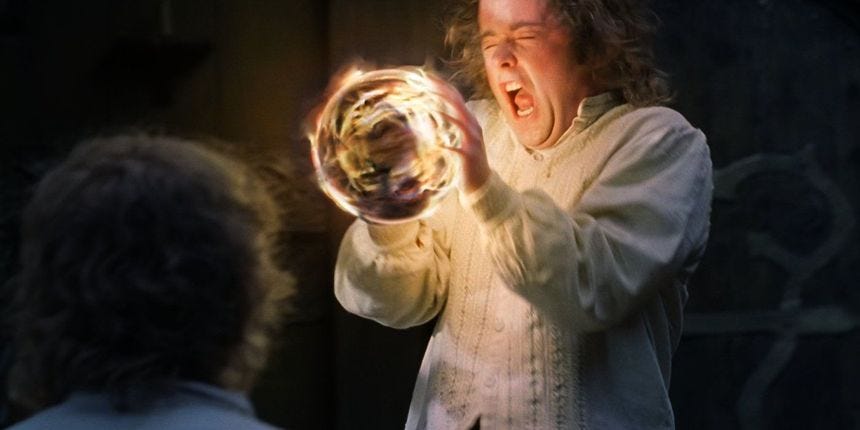How To Tell if Your Content Diet Isn’t Serving You
Welcome to the biggest information buffet in history. Don't fill up on the bread.
Every time we open our phones, we make a choice.
Previous generations had to accept media as the closest view of reality other than what they could perceive with their own eyes. Nowadays, the Internet can show you content on any topic, from any perspective. The reality we see is in our own hands, and we can bend it each day, often without even knowing what we’re doing.
It is for this reason that managing your content diet is one of the most important parts of being a human in the digital age. We owe it to ourselves to wield the near infinite amount of books, movies, shows, articles and posts to our own advantage, not to the advantage of politicians, social media platforms or Hollywood studio companies. This becomes even more important in an age AI, where the costs of content generation go down and algorithms get better at appealing to our base instincts.
So, what makes a good content diet? There is no simple answer to that, but similar to nutritional diets, diversity is key. Media is capable of doing incredible things for our minds as a supplementary part of our daily existence. At the minimum, it should prepare you, inform you and challenge your preconceived biases. When you’re doing it right, it can also surprise, inspire and connect you with some of the most potent thinkers to have ever lived. A good content diet should not be predictable and it cannot be left to chance.
The alternative is frightening, and we’re already beginning to see it in our personal lives. An unmanaged content diet is likely to make you fearful, depressed and angry. Algorithms designed to engage you at any cost will quickly turn you into a conspiratorial thinker, a nihilist, or worse than that, someone who only listens to AI-generated Spotify playlists.
I’ve seen this happen to a handful of friends and family members, and it’s often too late at that point. Your content diet is very personal, meaning that nobody else can address it for you or even tell you that you’re off track.
So, you are hopefully wondering about how you can ensure that your content diet is keeping you mentally fit for whatever comes next in this world. Here is a short list of what you should seek out.
The content you consume should cater to the full range of human emotions, and not be overly focused on activating ones such as fear or anger.
Content sources should surface diverse perspectives and topics, avoiding the trap of media that confirms your biases or confines your interests.
Your content diet should be made up of different media types of various lengths and intensities, avoiding a reliance on tweets, TikTok videos or anything else.
The breadth of content you seek out should include short, medium and long term time horizons, helping you to avoid doom loops and reactionary responses to shifting news cycles.
Your content diet should not perfectly mirror your real-world persona or lifestyle, because media is the best tool we have to understand different people and entertain different ideas.
I’ll be expanding on this list over time, perhaps with some content examples that I think are underrepresented in our social media age. Perhaps we should work together on building a better content diet. Think of it like sharing a new healthy weeknight dinner recipe, just for media. Curation folks, it’s important.
Is your content diet something you intentionally manage? How do you go about it? Let’s chat. As always, thank you for reading.


Love the idea of thinking of content we consume as a diet. Do we need a content food pyramid or visual representation of our content “plate” ? Maybe it’s different for everybody, but I feel something like that could better show what types and forms of content should make up majority of what we consume, and what we should only enjoy in moderation. Maybe a “content nutrition plan” that is tailored to everyone’s own goals